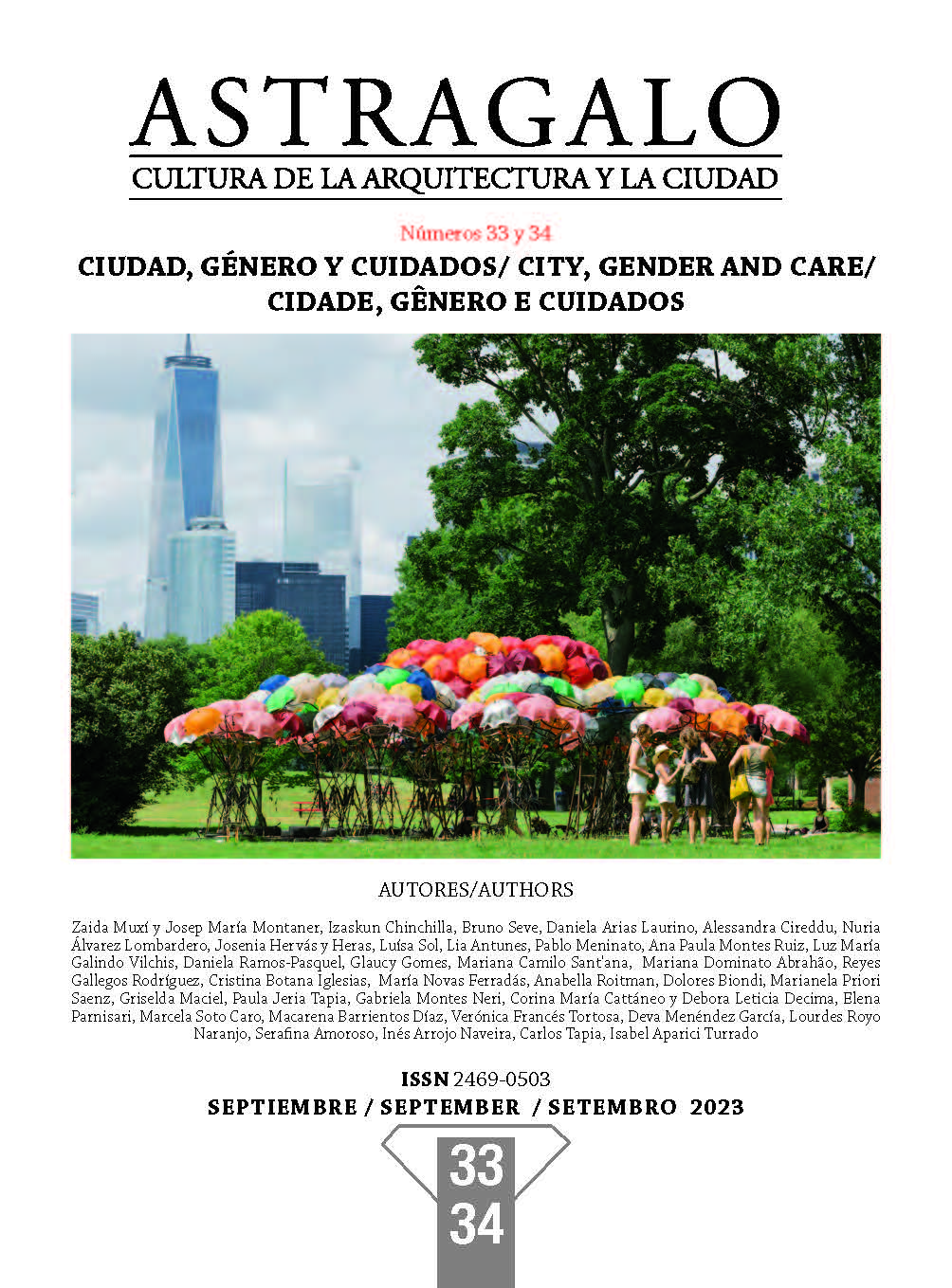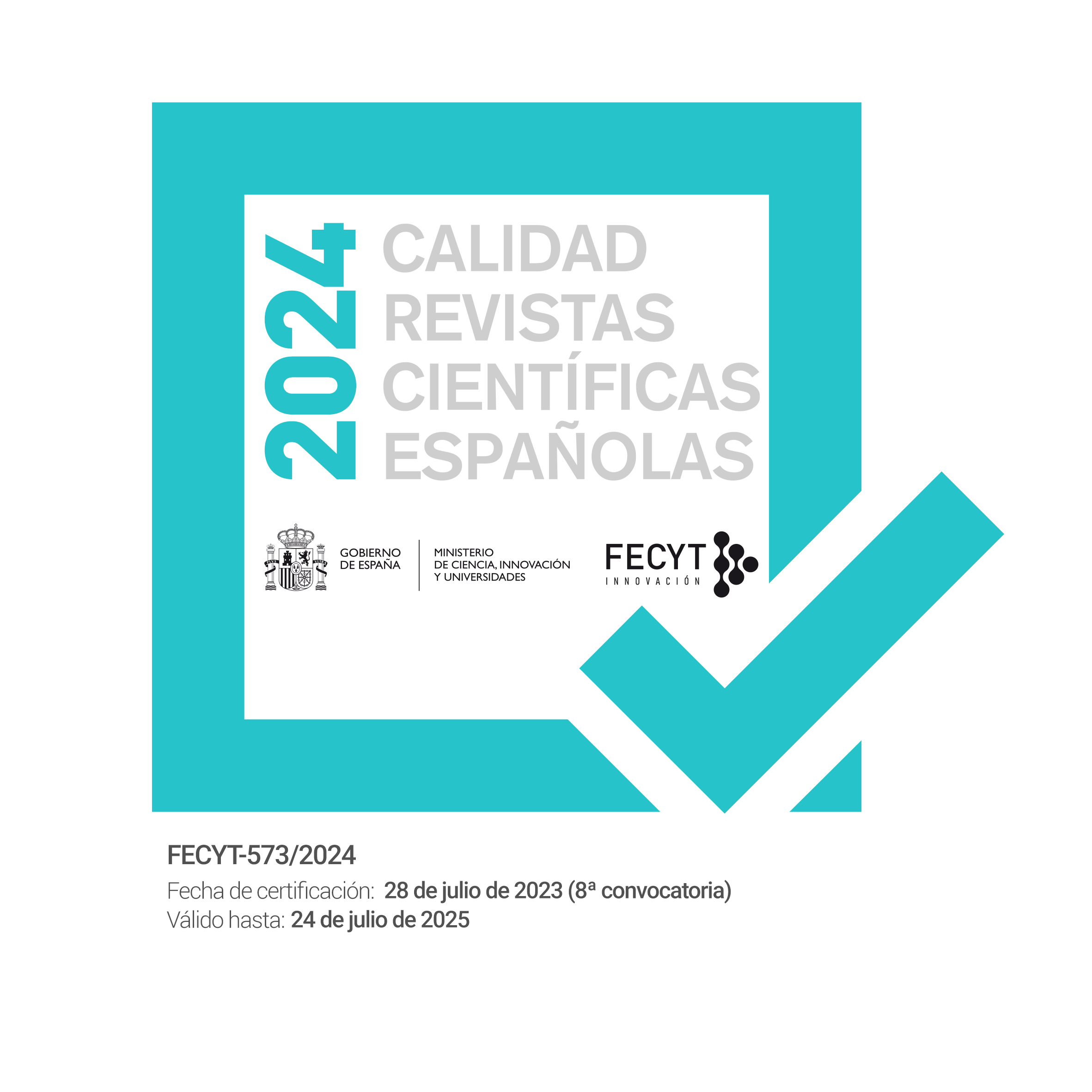On American Suburbia and Pruitt-Igoe
Television and the Politics of Care in American Postwar City
DOI:
https://doi.org/10.12795/astragalo.2023.i33-34.07Keywords:
American Suburbia, Pruitt-Igoe, Television, Gender, CareAbstract
This study aims at addressing the interplay between American Suburbia and Pruitt-Igoe-like projects through the lens of television representations while accessing their repercussions on city development regulations, Gender and Care. These concomitant urban models are two distinct examples of the American City, built from scratch at the height of Modernity and that concurs with the dissemination and banalization of Television.
Family values, domestic stereotypes, gender roles and segregation will be considered, while simultaneously, tackling the role of television in the implementation of media rhetoric that underlies the way these massive housing projects were designed, understood, and consequently, inhabited.
The suburbanization movement in postwar America symbolized the pursuit of the American Dream, emphasizing nuclear families, homeownership, and the construct of the suburban housewife. Concurrently, the Pruitt-Igoe housing project in St. Louis, Missouri, emerged as a symbol of failed urban planning projects whose consequences were to be predominantly faced by low-income., African-American residents. These contrasting narratives provide the backdrop for framing the politics of care and gender relations in a paradigm-shifting America.
While exploring housing policies, these two urban development models will be examined with a focus on the implementation of specific media narratives that shaped the social and cultural fabric of American postwar cities. At the same time, this discussion will be held from the vantage point of critical distance to review previous failures and understand that television can also be a common and legitimate platform to air counter-narratives that can build more balanced and inclusive urban models.
Downloads
References
Bristol, Katherine. 1991. “The Pruitt-Igoe Myth”. Journal of Architectural Education, 44,3 : 163-171.
Borders, Candice. 2017. “Remembering Black Women in St. Louis’s Pruitt-Igoe Housing Projects”. In https://www.aaihs.org/remembering-black-women-in-st-louiss-pruitt-igoe-housing-projects/ Accessed May 30,2023.
Colomina, Beatriz. 2006. Domesticity at War. Barcelona: Actar.
Federici, Silvia.2019. Re-Enchanting the World: Feminism and the Politics of the Commons. Oakland and New York: PM Press/Kairos.
Freidrichs , Chad, dir. The Pruitt-Igoe Myth. New York: Unicorn Stencil, 2012, DVD.
Hayden, Dolores. 2002. Redesigning the American Dream: Gender, Housing and Family Life, Revised and Expanded. New York: W.W. Norton & Company.
Jencks, Charles. 1991. The Language of Post-Modern Architecture. 6th edition, London:, Academy Editions.
Krasny, Elke. 2019. “Architecture and Care”. In Critical Care: Architecture and Urbanism for a Broken Planet, edited by Angelika Fitz and Elke Krasny, 33-41. Wien: Architekturzentrum Wien and the MIT Press.
Lewis, Sophie. 2022. Abolish the Family: A Manifesto for Care and Liberation. London and New York: Verso.
Sol, Luísa.2023. “Screen Care: Great Domestic Representations and Vulnerable Visibilities in Pandemic Landscapes”. In I, Like Many Things, edited by Gustav Nielsen, Rachel Tsai, Diana Smiljkovic and Jack Rusk, 15-23. New Haven: Yale School of Architecture.
Spigel, Lynn. 1992. Make Room for TV: Television and the Family Ideal in Postwar America. Chicago and London: Chicago University Press.
Spigel, Lynn. 2001. Welcome to the Dreamhouse: Popular Media and Postwar Suburbs. Durham and London: Duke University Press.
The Care Collective. 2020. The Care Manifesto: The Politics of Interdependence. London and New York: Verso.
Wolfe, Tom. 1981. From Bauhaus to our House. New York: Picador.
Downloads
Published
How to Cite
Issue
Section
License
Copyright (c) 2023 Luísa Sol

This work is licensed under a Creative Commons Attribution-NonCommercial-ShareAlike 4.0 International License.


















